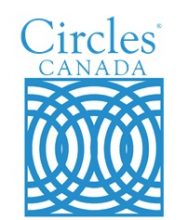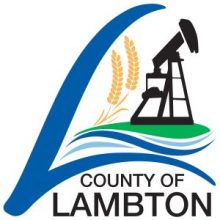POVERTY: Circles builds on personal contacts
by Shawn Jeffors
Editor’s note: This is the third in a five-part series about the Circles Poverty Reduction Strategy and the participants whose life it is changing. Lambton County is the first Canadian municipality to launch the program.
Ed Wolsey Jr. can admit it. Pride held him back.
Now, sitting in a quiet meeting room in a south Sarnia church, he says he knows he can pull himself up out of poverty. But he can’t do it alone.
“When you’re in a rut, sometimes you have to change a tire to get out of that rut,” he said. “I didn’t know where to go to make that change.”
Wolsey, a 37-year-old father of two, was always adamant he would do it himself. When it came to kicking his habits, booze and drugs, he wanted to do it alone. When it came to recovering from a debilitating car accident five-years-ago, he wanted independence. When it came to clearing his name of a 16-year-old criminal record, he wanted to do it by himself.
But he found he couldn’t.
“It was all too much,” he said. “It wasn’t always this way.”
Now he’s getting back to basics. Wolsey is a leader in Lambton County’s cutting-edge poverty reduction strategy, Circles. The program gives people like Wolsey the tools to do it themselves.
Leaders interact with a circle of community contacts lift themselves out of poverty. They set the goals and have “allies” to help them a long the way.
That’s were Wolsey’s ally, 42-year-old Jay Thompson, comes in.
“At first I looked at this as a chance to help other people,” said Thompson, a teacher at Alexander Mackenzie Secondary School. “Now it’s a chance to help my friend Ed.”
The pair were matched up when the program began in May and hit it off from the start.
“I thought Ed was just an easy-going, honest guy,” Thompson said. “We’re on the same wave length.”
Sometimes, they problem solve together. Wolsey and his boys needed a reliable computer with Internet access. Jay put in a few calls to friends and found one. Sometimes, it’s as simple as getting out together for an afternoon.
“We went and got some groceries,” Thompson said. “We just talked about life.”
But like every relationship there’s a commitment. You’re accountable for your decisions, Wolsey said. You don’t want to let anyone down. That goes both ways, for leaders and allies, Thompson said.
“When I say I’m going to do something, it means I’d better do it,” he said.
The program is showing bridges out of poverty can be built one person at a time, Wolsey said.
“We’re learning how to value ourselves and other people. Right now it seems like value is out in society. It’s something we’ve lost. We’ve got to get that back.”

